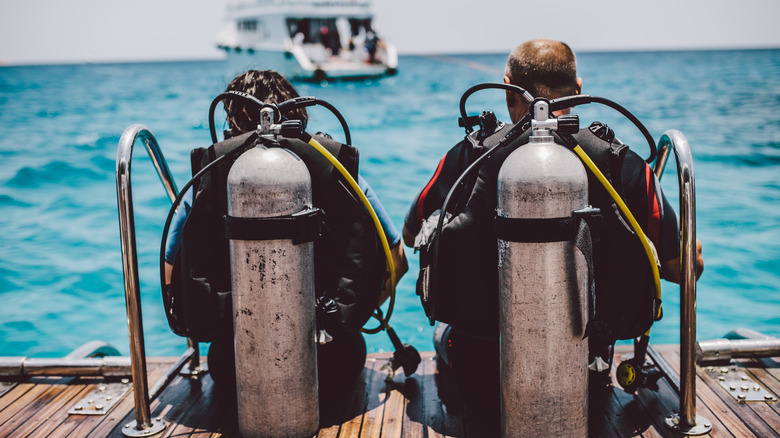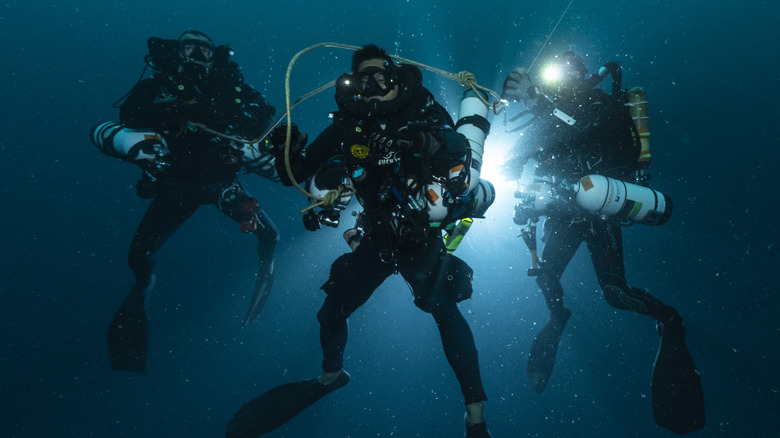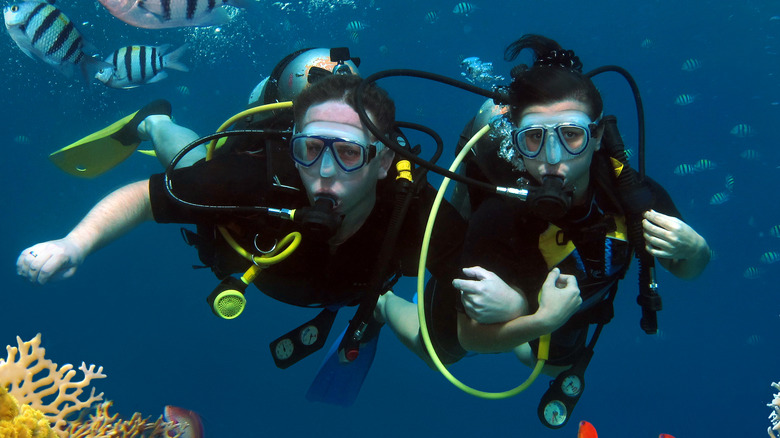This Is How Beneficial Scuba Diving Can Be For Your Health
Scuba diving gives us the chance to explore a completely new aquatic world. Squeezing into a wetsuit, strapping on an oxygen tank, and diving into a body of water can be exhilarating. Many are aware that the underwater activity can be an entertaining way to spend the afternoon, and as it turns out, swimming with the fish can also be a healthy workout.
If you would love to get all the benefits of scuba diving but feel you're not able to because you live in a colder climate, don't deny yourself a pair of flippers just yet. According to SCUBA Diving, cold water dives can be quite enjoyable if you are dressed properly. "If you're not dressed properly, diving in cold water is simply dangerous," said Becky Kagan Schott, an Emmy-winning underwater videographer and technical instructor. "If you're using the right exposure protection, it can be pleasant, like going outside in the wintertime to play in the snow."
Scuba diving is a great muscle workout
According to Deeper Blue, scuba diving increases your muscle strength and flexibility. While you may feel lighter than air as you float underwater, the truth is that your muscles are working hard as you swim through the current and resistance of the water. Additionally, your breathing tends to slow down when you're underwater. The longer, slower breathing promotes a blanketed sense of calm. This might help you reduce your stress and balance your nervous system.
As isolating as the activity may seem, scuba diving can actually be one of the best ways to increase your social health, according to Health Fitness Revolution. While you scuba dive, you're likely to come into contact with like-minded people who have similar interests. For safety reasons, it's advised to never dive alone. This means that you're likely to meet some companions who also have a love of scuba diving.
Scuba diving can reduce stress and improve your mood
When you first dive into the water, you may feel your heart rate increase and your blood pressure might rise, according to Deeper Blue. However, your heart rate and blood pressure will ultimately fall as you continue on with your dive, giving you a sense of calm. Just keep in mind that it's important to talk to your doctor before scuba diving if you have a history of high blood pressure.
Diving into crisp blue waters might sound tempting, especially now that you know how valuable it can be to your health. However, it's important to take the proper precautions before you enjoy your first scuba diving excursion. This may include speaking to a medical professional to ensure you are well enough to dive. By doing so, you'll be able to go scuba diving with fewer concerns at the top of your mind.



